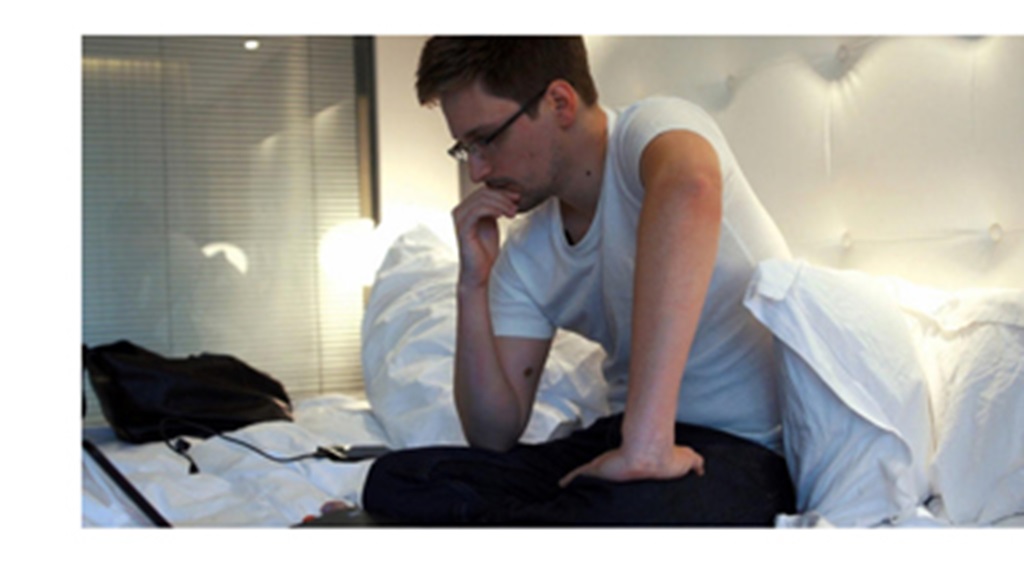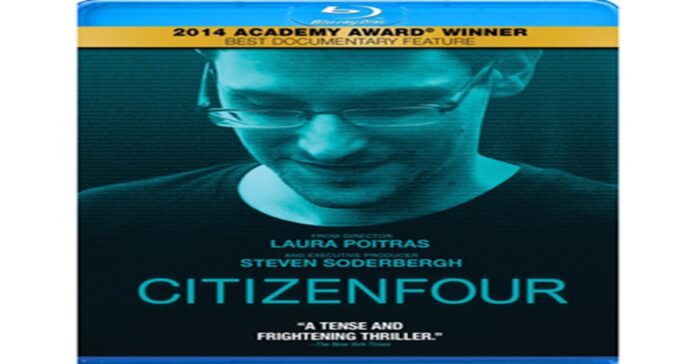Starring Edward Snowden, Glenn Greenwald, Julian Assange, Laura Potras, Marcel Rosenbach, Julian Borger.
Cinematography Kirsten Johnson, Trevor Paglen, Laura Poitras, Katy Scoggin
Film Editor Mathilde Bonnefoy
Produced by Mathilde Bonnefoy, Laura Poitras, Dirk Wilutzky
Directed by Laura Poitras
Citizenfour: A Cinematic Wake-Up Call
What does one say when a film serves as a profound awakening? Citizenfour, last year’s Oscar-winning documentary, ventures into legally precarious territory.
Despite the sanctity we explain to free speech and press freedoms in our society, the impact of modern technology and the expansion of secretive government security agencies have blurred the boundaries, prompting questions about the very definition of civil liberties.
Although I can articulate Citizenfour’s sincerity and credibility, its subject matter is staggering.
The film raises the dilemma of discerning when a whistleblower crosses into treachery or acts as a patriot.
The portrayal of NSA whistleblower Edward Snowden as a traitor compromising national security, particularly by the current administration and the media.
Contrasts sharply with Snowden’s own perspective and that of producer Laura Poitras, who had previously directed critical documentaries about Guantanamo and the Iraq War.

Snowden’s decision to disclose classified information, facilitated by Poitras and journalist Glenn Greenwald, led to increased scrutiny of the trio by authorities, including airport detentions.
Another whistleblower, William Binney, revealed that the NSA was utilizing its data collection systems to monitor every U.S. citizen, contradicting the government’s justifications and shattering the notion of privacy.
Citizenfour depicts Snowden’s secluded meetings with Greenwald and another journalist, Ewan MacAskill, in a Hong Kong hotel, capturing the tense decision-making process behind his public revelations.
Fully aware of the repercussions, Snowden strategically chose Hong Kong as a refuge, meticulously orchestrating the disclosure to avoid implicating Poitras and Greenwald.
The film also portrays the public’s and government’s responses to Snowden’s actions, portraying him as stubborn and principled in his belief that he acted in the public interest.
Contrary to initial assumptions, Snowden is depicted as a principled individual who sacrificed a comfortable life in Hawaii to expose government activities, emphasizing that he intended to shift the focus from himself to the government’s actions.
Also Read More: What I’ve Been Watching Lately: Wilder, Truffaut, Forsyth, Peckinpah
Citizenfour: Unveiling Government Surveillance and Whistleblower Realities
At one point, an alarm bell rings in the Hong Kong hotel, causing concern that an arrest may be imminent, reflecting the fear of potential collaboration between local police and U.S. officials.
The possibility of being covertly apprehended and taken to a secret prison is a genuine and chilling concern for the group.
The impact of Snowden’s leaks, intended to prompt a discussion about secret spying, instead shifts the focus to his whereabouts, as seen in Greenwald’s visit to Brazil to address the implications of the NSA disclosures.
The disclosures not only damaged the U.S.’ international standing but also revealed the use of gathered information by government spy agencies to aid American corporations in dominating the global business landscape.
The film also highlights the fallout in Germany, where it is revealed that the NSA systematically tapped the communications of Chancellor Angela Merkel, eroding trust in the U.S., even among its closest allies.
As the documentary concludes, Snowden expresses satisfaction that his actions may have sparked a larger movement, emphasizing his fate’s ongoing uncertainty.
The significance of “Citizenfour” lies in its portrayal of the U.S.’ pervasive cyber warfare, challenging the prevailing narrative of foreign cyber threats to the U.S.

The documentary, shot in HD cam footage without embellishments, captures the unfolding events without narration, providing a compelling account.
It portrays Snowden as a figure distinct from previous whistleblowers, devoid of personal vendettas, ideology, or monetary motivations, potentially positioning him as a critical figure in the contemporary political landscape.
The Blu-ray release by Anchor Bay offers a visually impressive presentation with no apparent technical issues.
The accompanying extras, produced by The New York Times, feature a thought-provoking TV discussion with key figures involved in the documentary, shedding light on the realities of government transparency and surveillance.
Additionally, a short film by Laura Poitras, “The Program,” delves into the construction of an expansive NSA data collection facility in Utah, providing insight into the extent of government surveillance and the challenges faced by whistleblowers.
On a scale of Excellent, Good, Fair, and Poor,
Citizenfour Blu-ray
rates:
Movie: Excellent
Video: Excellent
Sound: Excellent
Supplements: deleted scenes, NYT talk with Glenn Greenwald, Edward Snowden, David Carr; Dennis Lim and Laura Poitras Q&A; short opinion docu The Program by Laura Poitras
Deaf and Hearing-impaired Friendly?
YES; Subtitles: English
Packaging: Keep case
Reviewed: August 14, 2015
Footnotes:
- I don’t believe Snowden could still be considered a fraud. His personal gains from these actions are minimal, and he has already sacrificed much. Snowden’s sincerity is akin to that of a Vietnamese monk who self-immolated to make a political or religious statement – while one may disagree with the monk’s beliefs, it’s unlikely that he would lie about his reasons for such a drastic act.
- Possibly ‘unpopular’ viewpoints? Information that could be used against you? Any other private details you prefer to keep undisclosed for privacy reasons? I’d like to believe that if a military general, politician, or corporate CEO were to request all information on Glenn Erickson, the findings would be uninteresting to them. I hope that’s the case. “Citizenfour” prompts us to contemplate these concerns.
Also Read More: Is Michael Michele Related To Vanessa Williams? Relationship And Family Details

